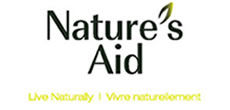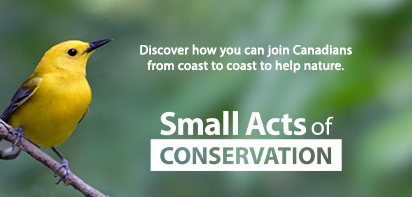Nature remains a restorative force for the pandemic-weary
8 in 10 people say they are spending time in nature
People are continuing to seek refuge in the outdoors to help cope with the stress and anxiety of the COVID-19 pandemic. The Nature Conservancy of Canada (NCC) says it is important for our physical, mental and emotional well-being to connect with nature.
A new Ipsos Public Affairs poll conducted for NCC reveals that 82 per cent of the people surveyed are spending time in nature. Thirty-seven per cent said they are spending more time outdoors compared to their lives before the pandemic began in March 2020. Among respondents, women, young people and young families were most likely to be spending more time outside.
“These findings underscore why protecting and having access to nature is important and helps all of us,” said François Duclos, senior advisor for visitor-use planning with NCC. “Many are turning to nature reserves, trails, green spaces and parks for physically distanced outdoor activities. They are embracing opportunities to get fresh air, exercise, feel a sense of calm and take a break from increased telework and screen time.”
Thanks to the government of Quebec, through a stewardship component of the Partenariat pour les milieux naturels project, NCC offers year-round accessible natural areas through its Nature Destinations. Visit a destination near you, acquired, in large part, through the Quebec government's private stewardship programs and financial assistance.
- Boisé-Papineau Nature Reserve in Laval
- Green Mountains Nature Reserve
- Pointe Saint-Pierre in Gaspésie
People are encouraged to explore Quebec’s most beautiful natural landscapes during winter and connect with nature. From birdwatching to wildlife spotting and discovering unforgettable landscapes, these moments spent in nature are sure to provide rich memories.
Help us protect these precious natural environments by staying on the marked trails.
The Nature Conservancy of Canada is providing people with tips on how to make the best of nature outings during winter. A list of useful suggestions to stay warm and safe is below.
Quotes
“Every day, nature sustains us and supports us. Among other things, spending time in nature provides us with significant mental and physical health benefits. Thanks to the government of Quebec, through the Projet de partenariat pour les milieux naturels, we offer year-round access to many of our protected lands and encourage Quebecers to enjoy the benefits of the outdoors. It is essential we conserve nature and offer it something in return. When nature thrives, we all thrive. Help us protect our natural heritage for our own well-being and for future generations by making a donation.” – Jean Laporte, Vice-President for the Nature Conservancy of Canada in Quebec
“I am proud of the Quebec government's contribution to the Projet de partenariat pour les milieux naturels of the Nature Conservancy of Canada (NCC). The protection of natural areas and public access to nature go hand in hand, and I am delighted that this partnership with NCC contributes to the achievement of both objectives.” – Benoit Charette, Minister of the Environment and the Fight against Climate Change, Minister Responsible for the Fight against Racism and Minister Responsible for the Laval Region
About
The Nature Conservancy of Canada (NCC) is the country’s unifying force for nature. We seek solutions to the twin crises of rapid biodiversity loss and climate change through large-scale, permanent land conservation. As a trusted partner, we work with people, communities, businesses and government to protect and care for our most important natural areas. Since 1962, we have brought Canadians together to conserve and restore more than 15 million hectares, including more than 49,000 hectares in Quebec.
The Projet de partenariat pour les milieux naturels (PPMN) is a four-year grant of more than $53 million from the Ministère de l’Environnement et de la Lutte contre les changements climatiques to NCC. It provides support for voluntary conservation initiatives to ensure the protection of natural areas of interest by establishing financial partnerships with conservation organizations in the province. The PPMN thus aims to develop and consolidate Québec’s network of protected areas located on private land. It follows the Ensemble pour la nature project, which ended on March 31, 2020, and had similar goals.
How to enjoy nature safely and responsibly
Everyone deserves to experience the joys of nature in winter. We all can help build an inclusive outdoors by making it safe, accessible and welcoming for all people, identities and abilities.
Here are some tips and things to remember when spending time in nature.
- Be prepared by wearing or bringing multiple layers of clothing to stay warm, as well as a hat, scarf, mittens and water-resistant jacket. Make sure you stay as dry as possible, as water against the skin from wet clothing can chill the body quickly. Have proper boots and foot aids to provide traction on slippery surfaces.
- Let others know where you are going and bring a phone so you can call for help if you get lost.
- Research the area you’re visiting for any regulations or special concerns.
- Be prepared for extreme weather, hazards and emergencies.
- Schedule your activity to avoid times of high use to allow for easier physical distancing.
- Know your limits and your gear. Go slow, chose lower-risk activities to avoid injury.
- Visit in small groups. Split larger parties into groups of four to six.
- Stay on durable trails and surfaces.
- Pack out all trash, leftover food, and litter, along with any pet waste if pets are allowed at the hiking site.
- Respect other users and visitors and protect the quality of their experience.
- Be courteous. Yield to other users on the trail.
- Take breaks and let nature’s sounds prevail. Avoid loud voices and noises.
- Observe wildlife from a distance. Do not follow or approach animals.
- Never feed animals. Feeding wildlife damages their health, alters natural behaviours and exposes them to predators and other dangers.
- Always control your pets or leave them at home.
- Preserve the past. Examine, but do not touch, cultural or historic structures and artifacts.
- Leave rocks, plants, and other natural objects as you found them.
Learn More
Follow us on on X (formerly Twitter): x.com/NCC_CNC | x.com/NCC_CNCMedia
Find us on Facebook
- 30 -




